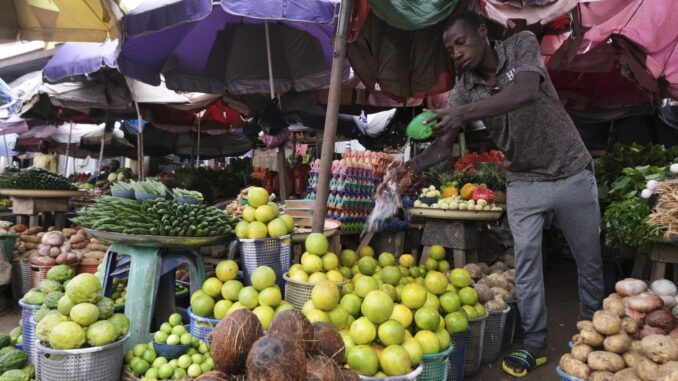
“Africa’s target of restoring 100 million hectares of degraded land on the African continent was achievable,” Nigeria’s President Muhammadu Buhari gave this assurance during a Great Green Wall (GGW) event at the margins of the ongoing United Nations Climate Change Conference (COP26) holding in Glasgow, Scotland, UK. The event co-hosted by President Emmanuel Macron of France, the Prince of Wales and President Mohammed Ould Ghazouani of Mauritania.
The theme of the event was: Accelerating Land Restoration in Africa, the case of GGW initiative. Buhari went on to inform the world that Nigeria will soon be assuming the leadership of the Conference of Heads of State and Government of the Pan African Agency of the Great Green Wall. Pursuant to this GGW initiative is the World Economic Forum’s mission to improve the state of the world economy through private- public cooperation, the transformative power of innovation and entrepreneurship.
Economists also believe that only systems change can solve most of the wicked challenges the world is facing today. These challenges include the climate crisis, the social and economic crises many societies are facing in the aftermath of the pandemic and of course, the COVID-19 crisis itself. The year 2020 has been a pivotal one in many areas. But one area that concerns all of us is that food re-emerged at the centre of the global agenda.
Happily, that comeback was marked by positive signs. For example, the World Food Programme was awarded the 2020 Nobel Peace Prize. And the UN Food Systems Summit took place this past September, with more than 90 heads of state speaking on food systems at the UN General Assembly. But also, there were more worrying reasons for food to return to the global agenda. In many parts of the world, the COVID-19 pandemic could still go from a health crisis to an economic crisis. In most vulnerable regions, this threat is exacerbated by existing and emerging conflict, and with that, the impact of climate change.
Sadly despite many years of progress, the number of people suffering food insecurity has begun to rise rapidly again. In 2020 up to 811 million people were undernourished severely. That meant as many as 161 million more than the previous year. Moreover, nearly one third of the world population cannot afford a healthy diet. Even, there is the real risk of growing food insecurity in the advanced countries.
So, as we get back on our feet after the coronavirus crisis, we will need to rebuild our food supply systems in a way that is healthier, more sustainable, more equitable and fairer for all. As we start undertaking a transformation of our food system, we must remind ourselves that such transitions are fundamental to secure the world from hunger. The overriding principle is to prioritize social solidarity and rural economic growth over simply improving supply chain efficiency. And that we must ensure the building of greater trust that food systems work for people.
Now, we have a great opportunity to engage about a billion producers and more than seven billion consumers around the world as change agents in this transformation. For success, demand driven and inclusive principles needed to be embedded in global, regional and community approaches.
END

Be the first to comment